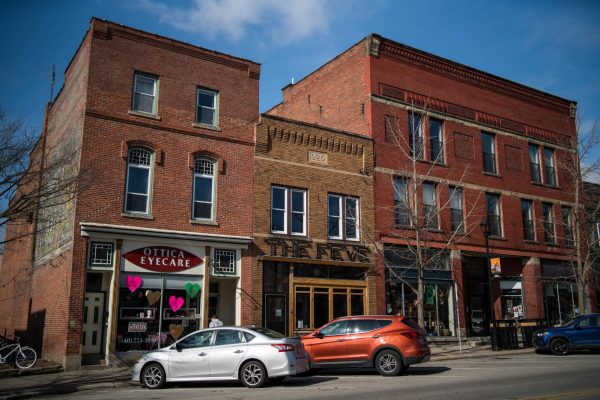Court of Appeals Sides With Oberlin in NEXUS Dispute
In a legal blow to the Federal Energy Regulatory Commission, the U.S. Court of Appeals sided with the City of Oberlin and other plaintiffs who opposed the NEXUS pipeline’s proposed use of eminent domain in the construction of the natural gas pipeline.
Oberlin took NEXUS to court because the 256-mile natural gas pipeline, which stretches from Kensington, OH to Canada, runs through land within city limits. The city argued that under the Natural Gas Act, FERC could only grant authorization for the use of eminent domain to companies like NEXUS for interstate projects, not international ones. The legal concept of eminent domain concerns reclaiming of private land for public need without compensation. In addition, Oberlin’s Community Bill of Rights bans pipelines on city land.
In the decision, Judge Robert L. Wilkins asked that FERC provide further explanation as to why the use of eminent domain was needed. He added that NEXUS had not sufficiently justified its market demand.
Carolyn Elefant, a lawyer for the City of Oberlin, was satisfied with the outcome of the hearing.
“Now it is up to FERC to decide what happens next,” Elefant said. “I think it’s unlikely this pipeline would have to stop operating, but we will have to see what FERC does. It’s really important for future projects even more than for this one. Right now, companies are building pipelines to ship gas to China and other countries in Asia, and those pipelines do not supply gas domestically. They are only for export.”
The decision follows years of contentious and controversial negotiations between NEXUS and Lorain County residents and Oberlin City Council that started in April 2015.
In 2015, NEXUS Gas Transmission, LLC applied to FERC for approval to build an interstate pipeline running from Kensington, OH to Ypsilanti Township, MI. Under Section 7 of the Natural Gas Act, once NEXUS obtained approval from FERC, the company could use eminent domain to complete the infrastructure project.
FERC’s approval of the NEXUS pipeline sparked controversy in affected areas across Ohio. The company eventually settled with every property owner that the pipeline crossed except for the City of Oberlin.
Oberlin City Council President Bryan Burgess voiced his opposition to NEXUS in 2015 and continues to oppose it today.
“How can a corporation justify taking public property for private purchase?” Burgess asked.
In the FERC report, the commission explained that the decision to approve the pipeline was made by weighing all possible outcomes.
“In deciding whether to authorize the construction of major new natural gas facilities, the Commission balances the public benefits against the potential adverse consequences,” read the FERC report.
The report also detailed the compromises it felt NEXUS was willing to make.
“NEXUS incorporated 259 route variations into its proposed route for various reasons, including landowner requests, avoidance of sensitive resources, or engineering considerations [which shows that the company] has actively worked to address landowner and community concerns and input,” FERC wrote.
Some student activists remain skeptical about the validity of these statements, and cite environmental damage at nearby NEXUS sites as a cause for concern.
“Sustainable Medina Country brought in these infrared cameras and found this massive plume,” College fourth-year Rachael Hood said about Wadsworth Compressor Station, a NEXUS site located in Guilford Township, OH. “They have been working to get air testing and air monitoring done.”
Safety concerns also exist in Oberlin. According to reports published by the EPA, chemicals associated with the compression of natural gas can be carcinogenic and pose public health risks.
“[The pipeline] runs near all the neighbors of Reserve Avenue,” Burgess said.
There are between 40 and 50 houses on Reserve Avenue which are within 50 feet of the pipeline, and all of these residences could be affected by leakage or explosions.
In 2018, Students for Energy Justice, an environmental student group in Oberlin led by Hood, took part in the activism against the NEXUS pipeline because of these safety concerns. The groups attended City Council hearings and were involved in construction monitoring training.
“In Oberlin, it’s both the risks of the pipeline exploding and leaking and it’s also the fact that Oberlin has this Climate Action Plan and Community Bill of Rights and is committed to a livable planet and a sustainable planet,” Hood said. “So there is [the] wider issue of expanding pipeline infrastructure and locking us into natural gas energy in the United States.”
Many Oberlin students and community members continue to stand firm in their commitment to policy that supports environmental action on both a local and global scale.






